
 Flash News
Flash News
Korça/ 40-year-old man jumps from fifth floor balcony, in critical condition
Croatia restores compulsory military service
Illegal constructions in Theth, Manja demands disciplinary proceedings against prosecutor Elsa Gjeli
Details from the murder of Renis Dobra, the perpetrators came with 2 Range Rover cars from Rrëshen
The Supreme Court left him in prison, Meta addresses the 'Constitution'
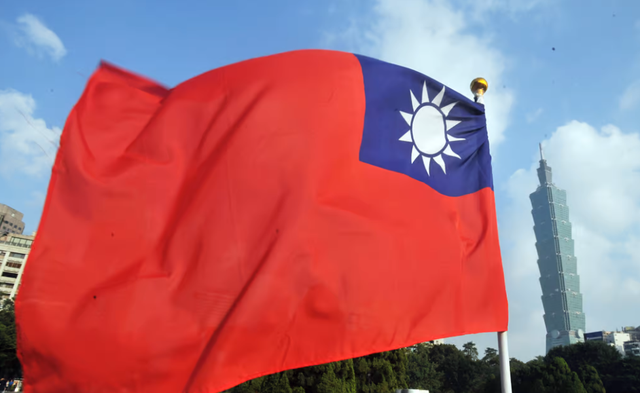
As tensions flare in East Asia, China's sanctions against Taiwan are a stark reminder to the European Union of how dependent it is on the island, and in particular on the small computer chips it produces.
China suspended some trade with Taiwan in response to US House Speaker Nancy Pelosi's visit to Taipei on Wednesday and staged military exercises.
China claims that Taiwan, a democratic island of 23 million people, is part of it. For now, China has limited its long-term retaliation to banning sand exports to the island, along with imports of citrus fruits, etc.
But the risk for Taipei and Western companies that depend on Taiwanese chipmaking is that Beijing's next measures will be much tougher, such as a full blockade or even a Chinese invasion.
Machinery and equipment accounted for almost 60 percent of EU imports from Taiwan last year. The biggest concern for European businesses would be the sudden cut in supplies of electronic chips, made by the world's largest semiconductor company: Taiwan Semiconductor Manufacturing Co (TSMC). The company captures more than half of the market and is said to have clients such as Apple and Qualcomm.
In a sign of the importance the US places on TSMC, Pelosi met with company chairman Mark Liu during her visit.
The problem for Europe is that it has built up its dependence on Taiwanese chips over many years, but a Chinese attack could instantly destroy a vital supply line with little or no warning.
So how can the EU protect itself from such a risk?
First of all, the bloc lacks the expertise that Taiwan has attracted. TSMC was founded in the late 1980s by Morris Chang, a former engineer at US-based Texas Instruments. Chang is a prime example of how Western tech companies have lost in the expertise that comes with a specialized process.
Problemi i dytë është natyra unike e çipave që mund të ofrojë TSMC. Kompania nuk është vetëm çelësi për pajisjet elektronike që aktualisht janë kudo të pranishme në telefonat inteligjentë ose laptopë, por tashmë po prodhon më shumë çipa të avancuar, si ato prej pesë nanometrash ose më të vegjël, të cilët do të jenë çelësi për drejtimin autonom.
BE-ja është, natyrisht, e vetëdijshme për grackat. “Është një sektor i cili është njëkohësisht kapital dhe njohuri intensive dhe i nënshtrohet evolucionit të shpejtë teknologjik. Prodhimi i çipave bëhet në një zinxhir furnizimi që është global, kompleks dhe, në disa segmente të rëndësishme, tepër i përqendruar”, tha një zyrtar i BE-së.
Pse Tajvani ka nevojë për Evropën
Tani, tensionet midis Kinës kontinentale dhe Tajvanit ngrenë pyetjen se si Pekini dhe Brukseli do të ecin përpara.
Roli vendimtar i TSMC nuk ka kaluar pa u vënë re në Kinën kontinentale. Në një fjalim në qershor, një ekonomist i lartë kinez i bëri thirrje hapur Pekinit që të "kapë" kompaninë.
Megjithatë, disa vëzhgues perëndimorë janë skeptikë se ky kërcënim do të materializohet duke thënë se thjesht nuk është në interesin e Kinës ta bëjë këtë, sepse TSMC mbështetet në kompani të tjera për ofrimin e pajisjeve, si kompania holandeze ASML.
Kjo është gjithashtu ajo që shefi i TSMC Liu tha në një intervistë të rrallë me CNN, duke paralajmëruar se kompania e tij do të ishte e pafuqishme nëse Kina pushton Tajvanin.
Hauser argumentoi se kjo i jep BE-së fuqi. "Ne kemi një mjet pazaresh si Evropa," tha ai. "Askush nuk mund të prodhojë çipa nën pesë nanometër në botë pa mjetet që prodhon ASML."
But the thought of the unthinkable scenario of a complete shutdown of Taiwanese chips will no doubt motivate European lawmakers and businesses to accelerate their existing plans to renew production of some chips and double Europe's market share in the global chain. of the value of semiconductors.
In February, the European Commission unveiled its €43 billion chip plans to lure some manufacturers into manufacturing commitments on the European continent. This is no easy task, as she must ensure that her state aid rules are not broken along the way.
Source: Politico
Latest news


Malltezi: SPAK admits, we are in a process that began with Balla's false report
2025-07-10 22:34:16

Si të çliroheni nga bllokimet emocionale me anë të ushtrimeve
2025-07-10 21:57:24

Lala: Veliaj wanted to return as mayor
2025-07-10 21:40:46

VIDEO/ Brawl in Bolivian parliament, deputies physically clash
2025-07-10 21:20:30


Albania experienced one of the longest heat waves of the last decade
2025-07-10 21:01:09

The Government approves new procedures for declaring residence in e-Albania
2025-07-10 20:39:32

Koka: Northerners will not forget Edi Rama's racist operation in Theth
2025-07-10 20:18:24
The 3 zodiac signs that will be most affected by the 'Full Moon' of July 10
2025-07-10 20:04:49
New director of the National Center of Cinematography appointed
2025-07-10 19:51:12
Korça/ 40-year-old man jumps from fifth floor balcony, in critical condition
2025-07-10 19:40:19
'Tired Woman'/ The Syndrome That Affects Thousands of Women Every Day
2025-07-10 19:34:02
Jane Birkin's original Hermès bag sells for $10 million
2025-07-10 19:26:22

Britain-Ukraine agreement signed for 5,000 Thales missiles
2025-07-10 19:00:25
Fire in Zvërnec, flames endanger two hotels
2025-07-10 18:57:19
Croatia restores compulsory military service
2025-07-10 18:39:01
Spahia: The great truth of the strong accusation of the residents of Theth
2025-07-10 18:35:07


The Supreme Court left him in prison, Meta addresses the 'Constitution'
2025-07-10 17:57:21
New punishment with 'new' regulations
2025-07-10 17:54:46
EU translator fired over fears for Zelenskyy's safety
2025-07-10 17:45:37
'You are a policeman, but not God, take my soul', protest for Agon Zejnullahu
2025-07-10 17:41:21


Video/ Rama repeats the scenario, kneels before Meloni again
2025-07-10 16:56:31
He set fire to a plot of olive trees, 50-year-old man arrested in Shijak
2025-07-10 16:46:19

Rubio: US and Russia have exchanged new ideas for Ukraine peace talks
2025-07-10 16:36:20
Death of 27-year-old, Lipjan Police Commander Resigns
2025-07-10 16:21:28
Video/ An apartment burns in Tirana near the New Bazaar
2025-07-10 16:09:36


Jensila lights up the internet with her birthday greetings to Ledri
2025-07-10 15:42:08
They're full of pesticides! List of 12 products we need to be careful of
2025-07-10 15:31:04

Worker falls from scaffolding in Shëngjin, urgently sent to Trauma
2025-07-10 15:11:03
Malltezi: Within one day they seized my accounts, properties and shares
2025-07-10 15:01:23
EU: Israel has agreed to more aid to Gaza
2025-07-10 14:55:19


Murder of Reni Dobra, 23-year-old's vehicle pulled from the water
2025-07-10 14:29:23
Trump's tariffs on Brazil raise coffee prices
2025-07-10 14:16:07
Ursula von der Leyen survives no-confidence vote
2025-07-10 14:04:27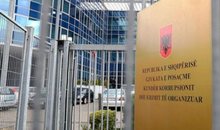


Fire in Lezha, flames near electrical substation
2025-07-10 13:32:24
Residents clash with police in Theth, a woman faints
2025-07-10 13:24:38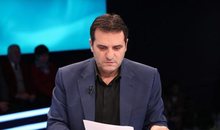
"Rama and Xanun"
2025-07-10 13:15:46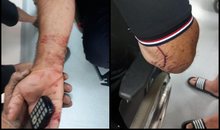
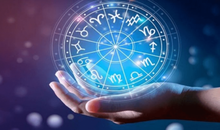
Zodiac signs most likely to get divorced in July 2025
2025-07-10 12:45:51
A scapegoat for an illegitimate Republic
2025-07-10 12:35:02
"He has devastated his own nation"/ Berisha: Rama imprisons his opponents!
2025-07-10 12:26:54

Albanian man injured with knife in Italy
2025-07-10 12:08:55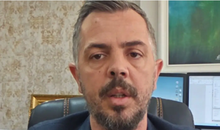






23-year-old in Mat drowned with rope, 4 suspects are being held
2025-07-10 10:58:53
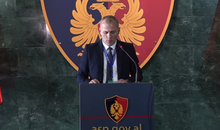
After the dismissals, the new director of the Shkodra Police is appointed
2025-07-10 10:30:10
BIRN: Rama's action for public spaces, a repeated spectacle
2025-07-10 10:29:11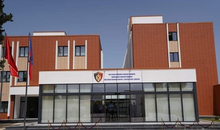
Action in Theth, Shkodra Police leaders dismissed
2025-07-10 10:16:28
Fatal accident on the Tirana-Durres highway
2025-07-10 10:01:58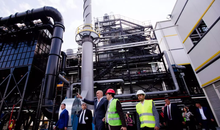
The incinerator does not exist, but the government continues to increase funds
2025-07-10 09:51:45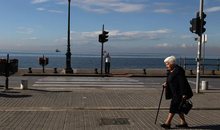
Albania is aging at a rapid pace! 30% of the population is over 60 years old
2025-07-10 09:46:23
End of an era, Modric says 'goodbye' to Real Madrid
2025-07-10 09:36:09
Mount Dukat has been on fire for 6 days, residents request air intervention
2025-07-10 09:27:24

"Poverty on the rise"/ DW: Many people in Germany are not getting paid
2025-07-10 09:08:06
Horoscope, what do the stars have in store for you today?
2025-07-10 08:51:59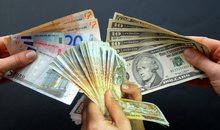


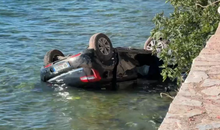

The scorching heat returns, the thermometer climbs to 40°C
2025-07-10 07:58:52
Morning Post/ In 2 lines: What mattered yesterday in Albania
2025-07-10 07:46:35
Tourist operator in Theth: They are demolishing our houses without warning
2025-07-09 22:54:57
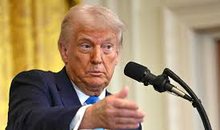
Trump and Israeli commander warn: Gaza ceasefire could be near
2025-07-09 22:13:21
Fire in Elbasan Landfill, pedagogue: It is a cancer and environmental crime
2025-07-09 21:54:47


Dangerous summer, number of snake bites increases
2025-07-09 21:22:13
Berisha appeals again: Stop state terror against the residents of Theth!
2025-07-09 21:15:36
'Kissing disease' virus linked to several forms of cancer
2025-07-09 21:04:44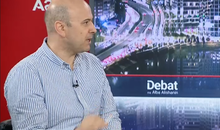
Malltezi confesses after release: Justice has become a political weapon
2025-07-09 20:51:48
Vokshi: Albania's EU integration has stalled due to lack of free elections
2025-07-09 20:37:21
